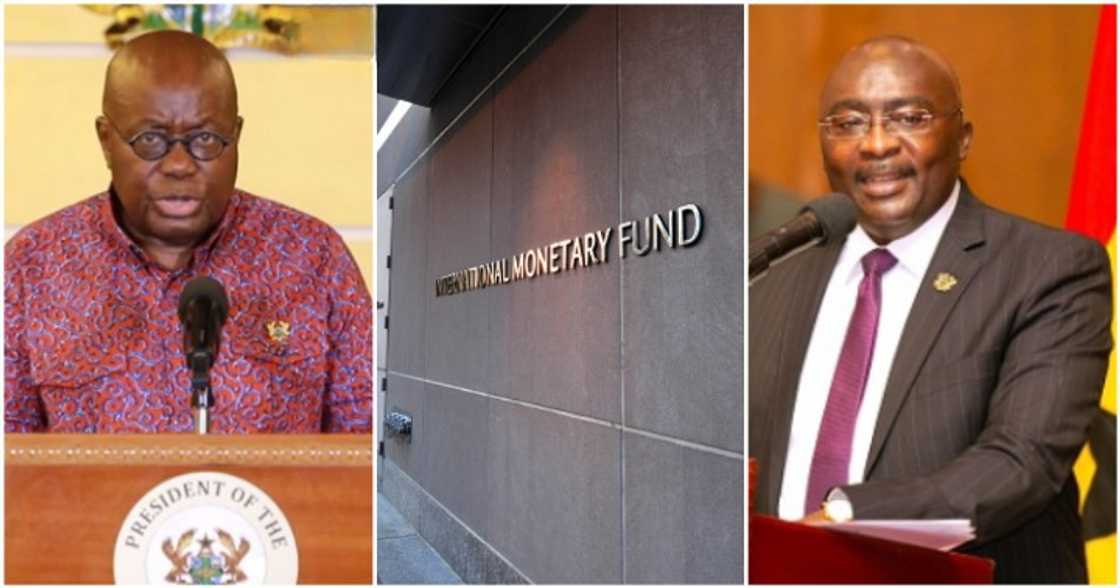IMF Bailout: Why Countries Turn to Fund for Loans During Economic Crisis
- Many factors account for why countries go to the Washington-based International Monetary Fund (IMF) for support
- However, it is often during an economic crisis that these nations turn to the Fund for urgent financing to stabilise their economy
- YEN.com.gh takes a look at some reasons countries engage the Bretton Woods institution for an economic bailout
New feature: Check out news exactly for YOU ➡️ find “Recommended for you” block and enjoy!
Several countries have turned to the International Monetary Fund (IMF) during a crisis for emergency financing to help stabilise their struggling economy.
Like many nations with troubled economies, Ghana engaged the Fund in the past for financial aid.
In 2015, the Fund's Executive Board approved a $918 million loan to Ghana to support a reform programme for faster growth and job creation while protecting social spending during the presidency of John Dramani Mahama.

Source: Getty Images
Nearly seven years after, the country is set to hold talks with the IMF for economic support.
PAY ATTENTION: Enjoy reading our stories? Join YEN.com.gh's Telegram channel for more!
President Nana Addo Dankwa Akufo-Addo instructed Finance Minister Ken Ofori-Atta to begin formal engagements with the Fund, a decision he previously refused despite the massive economic depression.
Per Gabby Otchere-Darko, a private legal practitioner and staunch member of the ruling New Patriotic Party (NPP), the government is not going to the IMF because it lacks discipline but for confidence.
So, why do countries turn to the IMF for support?
According to a video on the official Facebook page of the IMF, countries with troubled economies turn to the Fund for emergency financing to stabilise their economy. Without such loans, the impact of the dire economic situation could be worse on the citizens.
Countries often go to the IMF when they have no lending option because private investors and banks may be unwilling to risk giving money because of the country's struggling economy.
What the IMF does
The IMF provides short-term loans at an interest rate much lower than the market. It also provides zero-interest loans to poorer countries.
IMF lending is fast and flexible, which gives countries breathing room by allowing them to meet their immediate financial needs. The breathing space gives room for new policies to have an impact.
Watch the video below:
Mahama Welcomes Akufo-Addo's Decision to Go to IMF for Economic Support
YEN.com.gh earlier reported that former president John Dramani Mahama has welcomed President Nana Akufo-Addo's decision to formally engage the International Monetary Fund (IMF) for financial support.
He said though the decision was taken late, it is an important step towards addressing the nation's dire economic gloom.
''I welcome President Akufo-Addo’s decision to formally engage the IMF with the view to entering into a programme under the Fund.
New feature: Check out news exactly for YOU ➡️ find "Recommended for you" block and enjoy!
Source: YEN.com.gh



